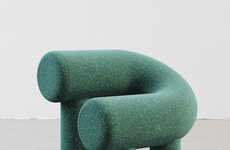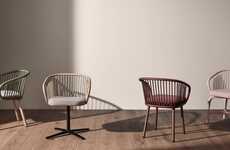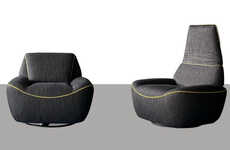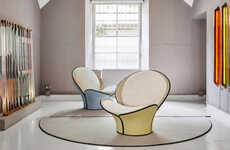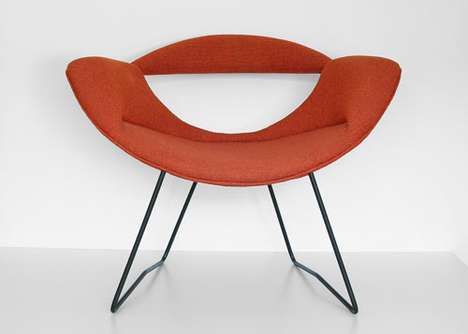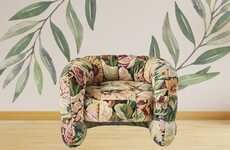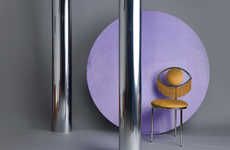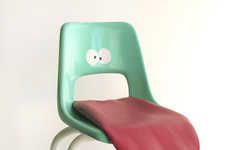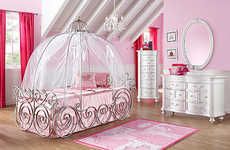
Karre Design's Rumi Armchair Has an Oddly Friendly Expression
Meghan Young — October 28, 2011 — Art & Design
References: karredesign.net & design-milk
Add friendly flair to the home with the Rumi Armchair. This subtly smiling seat is sure to have an infectious effect in anyone's life, making them smile themselves every time they see it, not to mention every time they are embraced by this uber comfortable and chic chair.
Designed by Turkish sculptor and designer Sadi Ozis back in 1964, the Rumi Armchair is currently being resurrected from the past by Istanbul-based design studio Karre Design. The Rumi Armchair was inspired by the Sufi mystic Mevlana Celaleddin Rumi, who preached peaceful and tolerant teachings, encouraging people to embrace everyone despite differences of religion, race and gender.
This acceptance is clearly evident in the Rumi Armchair's design that has a definite warm and welcoming presence to it.
Designed by Turkish sculptor and designer Sadi Ozis back in 1964, the Rumi Armchair is currently being resurrected from the past by Istanbul-based design studio Karre Design. The Rumi Armchair was inspired by the Sufi mystic Mevlana Celaleddin Rumi, who preached peaceful and tolerant teachings, encouraging people to embrace everyone despite differences of religion, race and gender.
This acceptance is clearly evident in the Rumi Armchair's design that has a definite warm and welcoming presence to it.
Trend Themes
1. Friendly Furniture - Furniture designs that incorporate emotions can offer a unique and welcoming touch to home decor.
2. Revival of Retro Designs - Resurrecting past designs with modern updates can provide new opportunities for designers and furniture manufacturers.
3. Emotional Design - Designing products with emotions in mind can create a deeper and more meaningful connection with consumers.
Industry Implications
1. Furniture Manufacturing - Incorporating emotional and nostalgic elements into furniture can differentiate brands and attract customers looking for unique and personalized furniture pieces.
2. Interior Design - Designers can utilize emotionally designed furniture pieces to create warm and welcoming spaces for clients.
3. Art and Sculpture - Artists and sculptors can create emotionally expressive pieces that can be adapted into functional furniture, expanding their artistic reach and opportunities for collaboration with furniture designers.
2.9
Score
Popularity
Activity
Freshness


